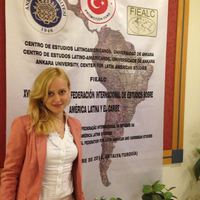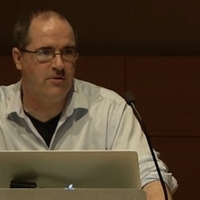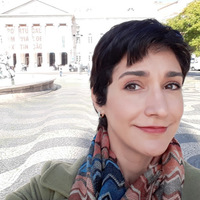Joerg Rieger
Joerg Rieger is Distinguished Professor of Theology and Cal Turner Chancellor’s Chair in Wesleyan Studies at the Divinity School and the Graduate Program of Religion at Vanderbilt University. Previously he was the Wendland-Cook Endowed Professor of Constructive Theology at Perkins School of Theology, Southern Methodist University. He received an M.Div. from the Theologische Hochschule Reutlingen, Germany, a Th.M. from Duke Divinity School, and a Ph.D. in religion and ethics from Duke University.For more than two decades he has worked to bring together theology and the struggles for justice and liberation that mark our age. His work addresses the relation of theology and public life, reflecting on the misuse of power in religion, politics, and economics. His main interest is in developments and movements that bring about change and in the positive contributions of religion and theology. His constructive work in theology draws on a wide range of historical and contemporary traditions, with a concern for manifestations of the divine in the pressures of everyday life.Author and editor of more than 20 books and over 125 academic articles, his books include Unified We are a Force: How Faith and Labor Can Overcome America’s Inequalities (with Rosemarie Henkel-Rieger, 2016), Faith on the Road: A Short Theology of Travel and Justice (2015), Occupy Religion: Theology of the Multitude (with Kwok Pui-lan, 2012), Grace under Pressure: Negotiating the Heart of the Methodist Traditions (2011), Globalization and Theology (2010), No Rising Tide: Theology, Economics, and the Future (2009), Christ and Empire: From Paul to Postcolonial Times (2007), and God and the Excluded: Visions and Blindspots in Contemporary Theology (2001). His books have been translated into Portuguese, Spanish, Italian, German, Korean, and Chinese. Rieger is editor of the academic book series New Approaches to Religion and Power with Palgrave Macmillan Publishers and, together with Professor Kwok Pui-lan, he edits the academic book series Religion in the Modern World (Rowman and Littlefield).Rieger has lectured throughout the United States as well as internationally, including presentations in Brazil, Argentina, Mexico, Canada, South Africa, Zimbabwe, Germany, Switzerland, Austria, Slovakia, the Netherlands, Belgium, England, Russia, and China. Rieger is on the board of directors of the Texas New ERA Center and Jobs with Justice in North Texas. He is an ordained elder in the United Methodist Church.Website: www.joergrieger.com
less
Related Authors
Esra Akgemci
Selcuk University (Selçuk Üniversitesi)
Max Ajl
Ghent University
Fábio Freitas Schilling Marquesan
Universidade Federal do Rio Grande do Sul
Jason W. Moore
Binghamton University
Miguel Imas
Kingston University, London
Marina Dantas
Universidade de Fortaleza
Attila Szigeti
Babes-Bolyai University
Susan Paulson
University of Florida
John W Maerhofer
Rutgers, The State University of New Jersey
InterestsView All (9)










Uploads
Papers by Joerg Rieger
This essay revisits the importance of labour/class relationships that point to the global phenomenon of increasingly unequal distribution of power at work for the sake of profit extraction. Class and labour relations have important implications for people's political agency, personal and communal relationships. Religion, as an everyday people's movement, cannot but attend to the metamorphosis that is happening to labour and power relations in society. On the other hand, labour movements can also benefit from religious communities because they tend to be well-organised and are often trying to make a positive difference in their environments. Alluding to Paul Tillich, this essay perceives productive and reproductive labour as the "ultimate concern" of theology and affirms that the engagement of religion and labour movements will envisage a new quality of international solidarity in
the contemporary era of Capitalocene.
Keywords: Labour relationships, political agency, lived religion, intersectionality, Capitalocene
status of the preferential option for the poor. In the following generations, this commitment
was further developed in the struggle for a new way of doing theology, even more connected to
material life, and disciplines such as history and economics were added. With this, the organizational
structures of life in society started to be discussed in more critical, systemic, and prophetic ways.
Especially thinking of the Latin American and US contexts, the production of theology derived from
this intersectionality seeks not only to highlight and analyze the economic structures that cause
exploitation (class), inequalities (gender and sexuality), and racism, but to identify how religion
undergirds solidarity movements. The method applied to discuss these themes is bibliographical
research. As a broad conclusion, this article indicates that future liberation theologies should discuss
what the multiple victims of capitalism (always the majority of the population, never merely a
minority) do in order to survive, related to the alternatives they create; discuss solidarity as the
foundation that opposes social evil; and discuss the illusions of individualism that cover up both
existing relationships of exploitation as well as solidarity.
This essay revisits the importance of labour/class relationships that point to the global phenomenon of increasingly unequal distribution of power at work for the sake of profit extraction. Class and labour relations have important implications for people's political agency, personal and communal relationships. Religion, as an everyday people's movement, cannot but attend to the metamorphosis that is happening to labour and power relations in society. On the other hand, labour movements can also benefit from religious communities because they tend to be well-organised and are often trying to make a positive difference in their environments. Alluding to Paul Tillich, this essay perceives productive and reproductive labour as the "ultimate concern" of theology and affirms that the engagement of religion and labour movements will envisage a new quality of international solidarity in
the contemporary era of Capitalocene.
Keywords: Labour relationships, political agency, lived religion, intersectionality, Capitalocene
status of the preferential option for the poor. In the following generations, this commitment
was further developed in the struggle for a new way of doing theology, even more connected to
material life, and disciplines such as history and economics were added. With this, the organizational
structures of life in society started to be discussed in more critical, systemic, and prophetic ways.
Especially thinking of the Latin American and US contexts, the production of theology derived from
this intersectionality seeks not only to highlight and analyze the economic structures that cause
exploitation (class), inequalities (gender and sexuality), and racism, but to identify how religion
undergirds solidarity movements. The method applied to discuss these themes is bibliographical
research. As a broad conclusion, this article indicates that future liberation theologies should discuss
what the multiple victims of capitalism (always the majority of the population, never merely a
minority) do in order to survive, related to the alternatives they create; discuss solidarity as the
foundation that opposes social evil; and discuss the illusions of individualism that cover up both
existing relationships of exploitation as well as solidarity.